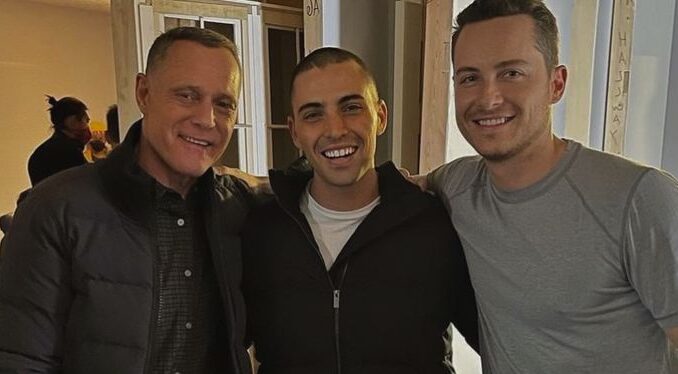The One Chicago franchise, which has captivated audiences for over a decade, is known for its interconnected storytelling, emotionally grounded characters, and the gritty, realistic portrayal of first responders. Loyal viewers have built deep attachments to the fictional firefighters of Firehouse 51, the doctors and nurses at Gaffney Chicago Medical Center, and the officers of the Intelligence Unit. So when news broke of a significant format shift ahead of the new fall premieres, it was bound to spark controversy.

The announcement? NBC will no longer air the One Chicago shows back-to-back in their usual three-hour Wednesday night programming block. This change disrupts a tradition that fans have cherished for years. Instead of the seamless, high-octane night of cross-show storytelling, viewers will now have to navigate scattered time slots and possibly even different days. The decision, which came down from network executives, was allegedly made to “maximize ratings potential” and “test broader audience engagement.” But for devoted fans, the explanation doesn’t ease the sting.
Since their inception, the One Chicago shows have thrived not just as individual series but as a cohesive storytelling experience. Crossovers have been a staple, allowing characters to move fluidly between shows—Boden advising Halstead, April treating Severide, or Burgess working a case that links back to an accident seen in Chicago Med. These interwoven storylines created a sense of realism and depth, reflecting the way first responders truly operate: collaboratively and across departments.

Without a unified time block, fans fear that the magic of those crossovers could be lost—or at the very least, diminished. There’s a growing concern that viewers won’t follow all three series as faithfully, especially with the hectic nature of midweek TV programming and streaming platform competition. One devoted fan summed it up on social media: “It’s not One Chicago if they’re airing on different nights. That’s just three shows set in the same city.”

The timing of the change also adds to the frustration. Coming off a challenging production year and amidst cast shakeups—including the departure of beloved characters like Hailey Upton (Chicago P.D.) and Ethan Choi (Chicago Med)—the franchise is already under pressure to retain its loyal base. This programming alteration feels like a gamble at a time when consistency and stability would arguably serve the franchise better.
From a storytelling perspective, writers are now faced with the added complexity of crafting plots that either must stand alone more frequently or coordinate across non-consecutive airings. Will cliffhangers carry the same punch if viewers have to wait days—or even a week—to see the resolution on a sister show? And what happens to viewers who only follow one series and now miss vital pieces of overarching plots?
Despite the backlash, not all fans are completely against the move. Some believe this might give each show more breathing room, allowing them to expand creatively without being tethered to crossover constraints. One optimistic viewer commented, “Maybe this will finally give Chicago Med a chance to stand on its own again instead of just being a lead-in.” Others note that with the rise of on-demand viewing, the traditional programming block might matter less to younger audiences who stream episodes on Peacock or DVR them anyway.





